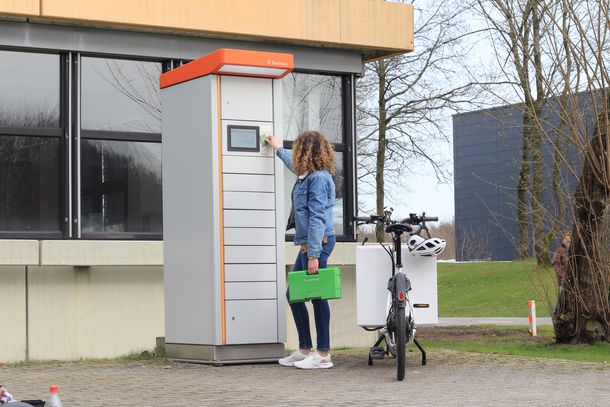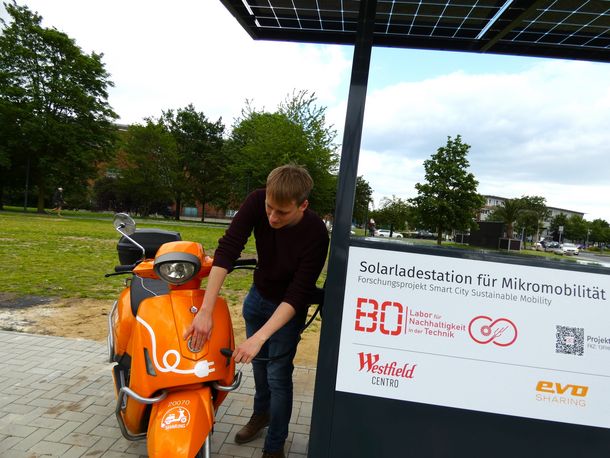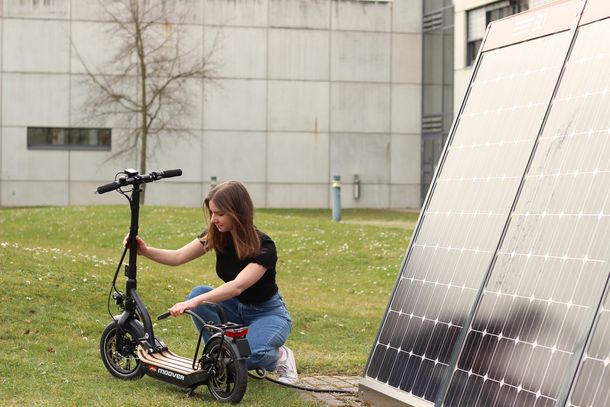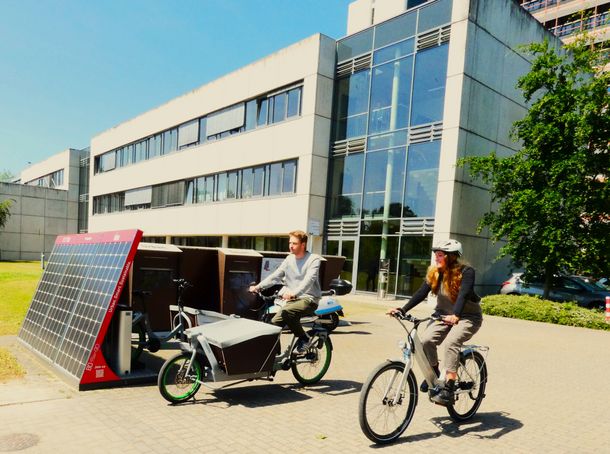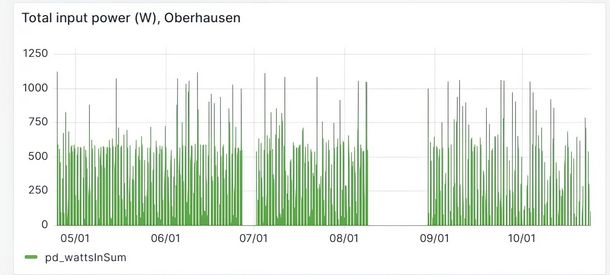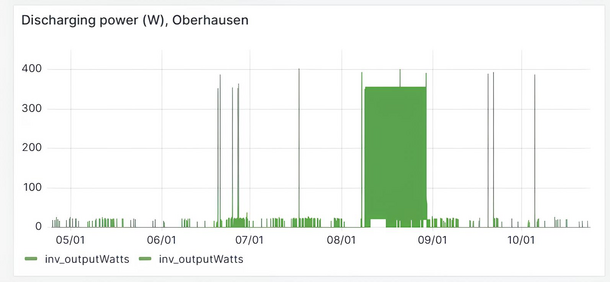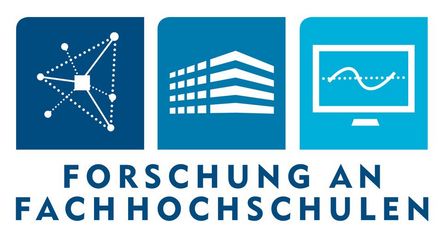SCiSusMob II - Smart City Sustainable Mobility II
Smart City Sustainable Mobility II (SCiSuSMob II)
The transport sector is facing a major transformation task. This includes the reduction of greenhouse gas emissions and air pollutants as well as the creation of digital, smart offerings for greater resource and space efficiency, especially in urban areas. At the same time, corresponding solutions must remain future-proof and affordable. Sharing and logistics services with Light Electric Vehicles (LEVs) can make an important contribution to this. LEVs include electrified light vehicles such as e-scooters, pedelecs, cargo pedelecs and e-mopeds, which enable locally emission-free and energy-saving urban mobility.
The sustainable outcome of these concepts is yet controversial both in the public debate and within the research community. In the field of mobility and energy services, there is a large number of operators with different vehicle, battery and energy supply systems as well as business and operating models. Smart and sustainable solutions for the efficient and renewable energy supply of LEVs are missing. The project addresses the research question of how energy supply infrastructure for LEVs can be designed and linked to different sharing and logistics services using digital solutions in order to improve the sustainability of the urban mobility system.
Referring to the previous sub-project SCiSusMob I, the innovative core of the project continues to be the holistic consideration of mobility and energy supply from the perspective of sustainability science, taking a sustainable digital infrastructure into account. The focus of this subproject is to test and validate the research results of the preliminary project in the real laboratory, especially regarding the joint platform for mobility and energy services. This results in an assessment tool which evaluates the data with a standardized methodology and points out the sustainability impact of mobility services in municipalities. The solution concept is based on a multi-criteria evaluation. It includes the impact of novel mobility services on municipal transport systems regarding the identified criteria in the preliminary project, e.g. substitution effects and CO2 savings.
As an additional focus the logistics services need to be considered as potential actors in the system. Based on a previously developed taxonomy the token economy system will be tested in an application-oriented manner in order to generate further research findings on user behavior based on empirical data from the field. This should enable new business models, promote user acceptance, and provide incentives for the use and integration of renewable energies in the solution approach.
The research priorities presented are divided into the following work packages:
1. method development for sustainability assessment, e.g. by conducting life cycle assessments/ LCA as well as acceptance research.
2. research into energy supply concepts for LEVs
3. business and operational models for mobility and energy supply concepts
4. development of a decentralized digital platform for mobility and energy services
5. testing of the mobility and energy supply system in the real laboratory
6. standards and legal framework for the planned system
7. public relations & communication
The research project, led by Prof. Dr.-Ing. Semih Severengiz, is implemented according to a transdisciplinary approach in close cooperation with companies from the value network in the field of energy supply and mobility services. In addition, the companies e-bility GmbH, Stadtwerke Bochum Holding GmbH, Swobbee GmbH, Bochum-Gelsenkirchener Straßenbahnen AG and SunCrafter GmbH are participating in the project by providing unrestricted third-party funding.
Successful Demonstration of Our Blockchain Platform
We are happy to share the successful demonstration of our Blockchain Platform, developed with Green Power Brains. This platform creates tokens, called ‘Carbon’ and ‘Solar,’ when EVO fleets are charged at our solar-powered charging stations.
This innovative system encourages the use of clean energy while providing a secure and transparent way to track and reward renewable energy usage. The platform is easy to use, with a simple and clear interface. Below is an image of the front end, showing how the platform works and its clean design.
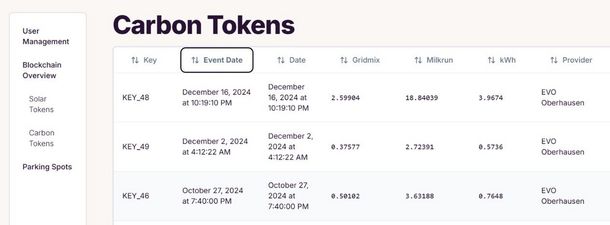
Latest News
The solar charging station has been operational for real users since March 2024. EVO's (Energieversorgung Oberhausen AG) shared fleet users have been informed about the availability of the solar charging facility. Currently, data from the solar station is being monitored in the lab to assess its feasibility and usage behavior. A snapshot of data from the Oberhausen solar charging station is shown below. The upper image illustrates the PV input power from the solar panels to the station's storage system, while the lower image shows the power delivered to the vehicles.
Publications
- Nikolic, M., Schelte, N., Velenderic, M., Adjei, F., Severengiz, S., “Life Cycle Assessment of Sodium-Nickel-Chloride Batteries”, IRES 2022 – 16th International Renewable Energy Storage Conference (IRES), Düsseldorf, 20-22 September 2022. DOI: https://doi.org/10.2991/978-94-6463-156-2_23
- Bauer, O., Schünemann, J., Spelten, T., Severengiz, S., "Framework for the comparison of different transportation modes under the aspects time and greenhouse gas emissions", IEEE European Technology and Engineering Management Summit, Kaunas, 20-22 April 2023.
- Severengiz, S., Schünemann, J., Lazer, L., Altendeitering, A., "Assessing the Environmental Impact of Micromobility: Contributions for the Development of a Guide for Cities", LCM 2023 – 11th International Conference on Life Cycle Management, Lille, 6-8 September 2023. Poster Presentation.
- Schünemann, J., Severengiz, S., "Life Cycle Assessment of combined sharing systems with different light electric vehicles in urban areas, considering novel charging infrastructure and modal shift", LCM 2023 – 11th International Conference on Life Cycle Management, Lille, 6-8 September 2023. Poster Presentation.
- Rottmann, D., Stinder, A., Severengiz, S., Schünemann, J., Galipoğlu, E. "Energy-as-a-Service Modelle als Wegbereiter für nachhaltige, urbane und geteilte Mobilität", In: Forum Dienstleistungsmanagement, vol. 24: Sustainable Service Management, Bruhn, M., Stauss, B. (eds.), Basel & Hohenheim, 22 September2023.
Contact

Duration:
07/2022 - 05/2025
Objectives:
- Sustainability assessment of mobility and energy supply systems with LEV through real-lab data from the Ruhr area.
- Optimized technical solutions of a smart and regenerative energy supply of LEVs
- Analysis of LEV business and operation models with special regard to the requirements of logistics services and private end users
- Evaluation of a token-based incentivization system for sustainable user behavior
- Development of a guideline for legal standards in the field of Light Electric Vehicles, charging infrastructure and blockchain
Funding program:
FH-Impuls: Research at Universities of Applied Sciences
Funding source:
Federal Ministry of Education and Research (BMBF).
Project sponsor:
VDI
Project volume:
419,600€
Funding reference:
13FH0I03IA


